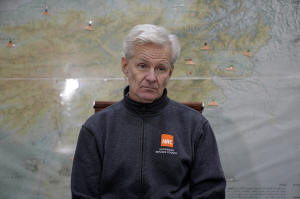|
The NRC helped 772,484 Afghans in 2022. That number fell to
491,435 in 2023. Last year, the aid agency helped 216,501
people. Half of its beneficiaries are women.
Egeland, who has made several visits to Afghanistan since 2021,
said: “We see one after the other peer organization cutting
programming and staff in the last two years. The biggest threat
to programs helping Afghan women is funding cuts. The biggest
threat to the future well-being of Afghan women is (the lack of)
education.”
The Taliban takeover in August 2021 drove millions into poverty
and hunger after foreign aid stopped almost overnight.
Sanctions against the country’s new rulers, a halt on bank
transfers and frozen billions in Afghanistan’s currency reserves
have cut off access to global institutions and the outside money
that supported the aid-dependent economy before the withdrawal
of U.S. and NATO forces.
The U.N. and others have urged the international community to
continue supporting the beleaguered country.
Organizations like the Norwegian Refugee Council have helped
keep public services afloat through education and health care
programs, including nutrition and immunization.
But women and girls face more obstacles in accessing health care
and education because of restrictions imposed by authorities and
an ongoing shortage of female medical professionals, also
exacerbated by Taliban decrees.
Egeland said Afghan women and girls had not forgotten world
leaders telling them their “number one priority” was education
and human rights. “Now we can’t even fund livelihood programming
for widows and single mothers,” he told The Associated Press by
telephone from the western province of Herat.
The international community provided humanitarian assistance in
many countries where they disagreed with local policies. But
opposition to Taliban policies, together with a “general
starving” of aid funding in many countries, was worsening the
shortfall in Afghanistan, he said.
Egeland said most of his discussions with Taliban officials on
his trip were about the need to resume classes for women and
girls. “They still argue that it will happen, but the conditions
are not right," he said. "They say they need to agree on what
the conditions are.”
All contents © copyright 2025 Associated Press. All rights
reserved |
|




